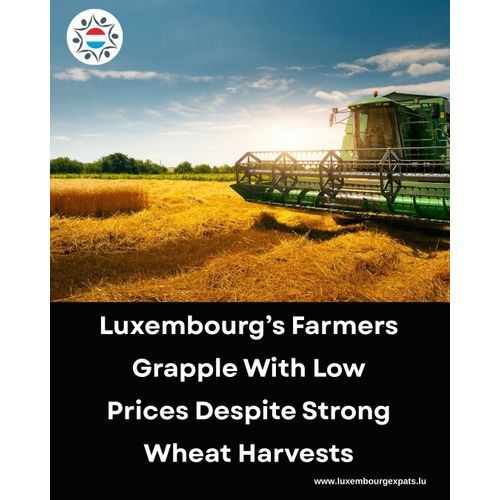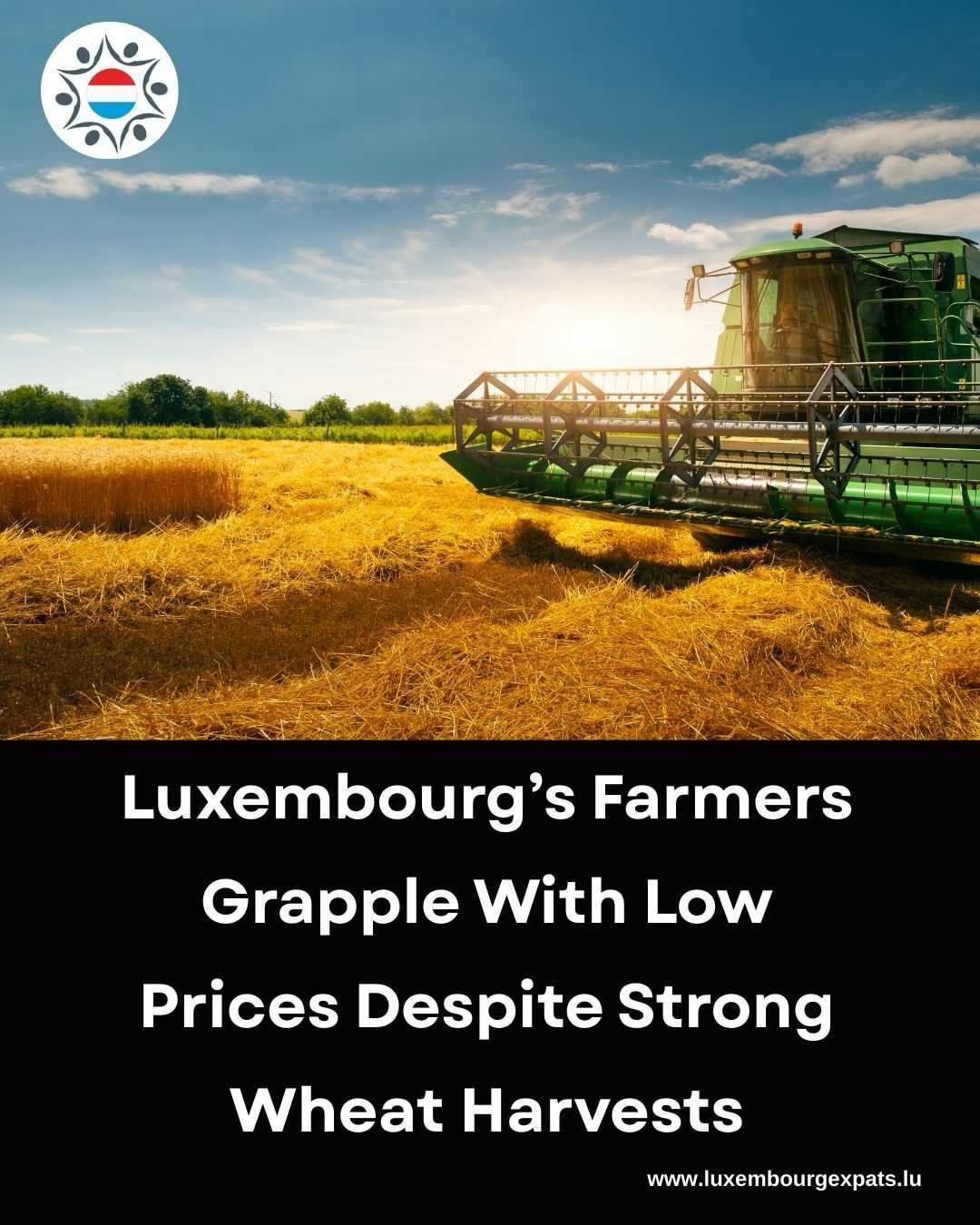Luxembourg’s Grain Farmers Grapple With Low Prices Despite Strong Wheat Harvests
LuxembourgPosted on 28 August 2025 by TeamHigher Yields Bring Little Relief
Luxembourg’s farmers are reporting a notably better wheat harvest for 2025, with yields increasing by 10–20% compared to the crop-short season of 2024. The agricultural cooperative Verband estimates average wheat production at six to eight tonnes per hectare, and test results indicate good quality for bread wheat. This positive output echoes similar patterns across Western Europe, with neighboring France also rebounding from last year’s poor results.
Global Oversupply Drives Price Slump
Despite improved yields, the celebration among Luxembourg’s grain growers is muted: grain prices have collapsed to levels not seen since the 1980s—roughly €14 per 100 kilos. Production costs, meanwhile, have tripled over the last four decades, largely driven by rising inputs, machinery expenses, and wages. The combination means most growers are selling below production cost, a trend mirrored in other EU countries as expanded harvests push global wheat stocks near 271 million tonnes for 2025–2026—up from 264 million the year before. Across Europe and beyond, bumper harvests and sluggish export demand are keeping world prices low, leaving local farmers little room to maneuver.
Climate Change and Fungal Pressures
Climate extremes haven’t just affected volumes. Many producers are facing an uptick in ergot fungal contamination, which is increasingly a problem for wheat due to stress during the flowering stage—linked to erratic rain, drought, or temperature swings. European trade standards on ergot are tightening, leading farmers to invest in more sorting and testing to ensure compliance and maintain access to export markets.
Producers Respond With Caution and Diversification
Local farmers, like those near Gostingen, must choose between accepting current prices—rarely enough to cover costs—feeding the grain to livestock, or storing it in hopes of future price improvements. Many are now turning to diversified strategies, including expanding into viticulture or dairy, to supplement their incomes. Table grape and wine production in Luxembourg offer some hope: yields are strong and grape quality is promising this year, though even here, prices remain low and broader consumption is declining.
Calls for Support and Future Steps
With the situation precarious, many in the sector are awaiting results from upcoming harvest negotiations with the Ministry of Agriculture, set for September. While government intervention is not guaranteed, it may be necessary to prevent widespread financial losses.
Uncertain Prospects in the Global Market
The challenges facing Luxembourg’s wheat growers are emblematic of wider global agricultural trends: strong yields have not led to prosperity amid a glut of supply, low demand, and mounting pressures from climate events and market volatility. For now, the hope is that adaptation, innovation, and coordinated action will secure a future for Luxembourg’s farming community—and help them weather the storms ahead.
Luxembourg - Wheat and spelt: Area (cultivation/harvested/production) - 2025 Data 2026 Forecast 2011-2024 Historical
Join the community of your own - #1 home-grown LuxExpats app
SignUp Free: luxembourgexpats.lu
I am your contact
Team
Chat









